30 Workers in Iran Die in Mine Accidents Over Past 15 Months
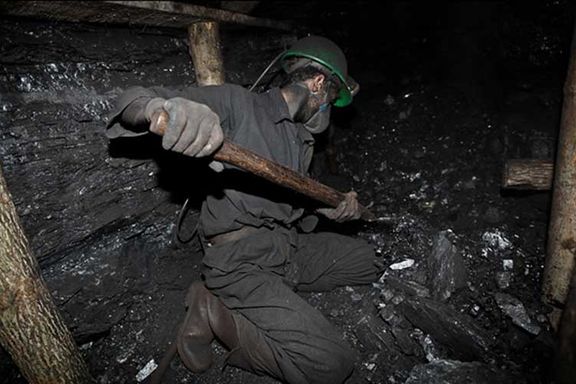
In the past 15 months, 30 workers in Iran have died in mine accidents and collapses amidst protests by thousands of miners over poor working conditions and wage grievances.

In the past 15 months, 30 workers in Iran have died in mine accidents and collapses amidst protests by thousands of miners over poor working conditions and wage grievances.
On Thursday, Iran's Etemad reported on the "exploitation" of mine workers, noting that in addition to fatal accidents, job insecurity is a significant concern.
The report highlighted that thousands of coal, copper, iron ore, and chrome miners across Iran have staged protests lasting from several hours to weeks over the past 27 months.
Etemad's report indicated that over 83 percent of these protests demanded wage increases and addressed delayed payments, with coal miners demonstrating for extended periods.
The newspaper also pointed out that over the past two decades, mine safety and job security for workers have drastically declined, particularly in privately owned mines. Workers are increasingly employed on unstable contracts, ranging from one to three months, often with promissory notes.
The "Zemestan-Yurt mine" incident is still cited as a symbol of miners' oppression and one of the most significant documented cases of mine safety issues in Iran over the last two decades. During a 2017 explosion at the Yurt coal mine in Golestan province in north Iran, 43 workers died. At the time, none had insurance for hazardous jobs, and they had not been paid for months.
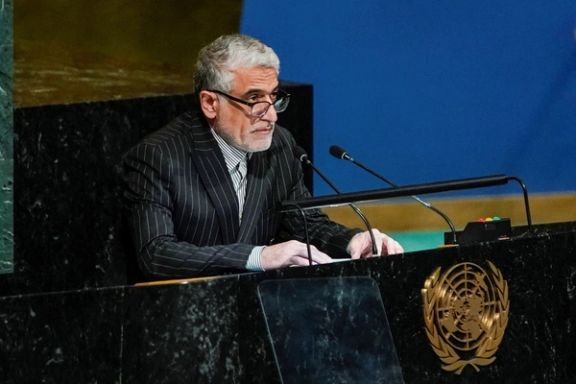
Iran’s ambassador and permanent representative to the United Nations has denied supporting its Yemeni militia, the Houthis, calling the claim "unfounded".
Amir Saeid Iravani voiced his criticism of the US claims in letters addressed to the UN Secretary-General and the President of the Security Council on Wednesday amid the Houthis' blockade of the Red Sea region.
The denial followed a statement from Robert Wood, the US representative at the UN, who told a Security Council briefing on Yemen in June that Iran continues to support and enable Houthi attacks in the Red Sea, violating the arms embargo.
Wood emphasized that “Iran should not be permitted to hide behind the Houthis. It must comply with the Council’s resolutions and cease its provision of weapons.”
Iravani, in his response, wrote: “On numerous occasions, Iran has made it clear that it is committed to the Security Council's relevant resolutions on the situation in Yemen and has not engaged in activities contravening these resolutions.”
However, Iran arms, trains and funds the militia, which has been at the heart of a decade-long civil war in Yemen.
Since November, the Houthis, who control Yemen's capital and its most populous regions, have attacked international shipping in the Red Sea in solidarity with Palestinians in Gaza.
During this period, they have conducted over 60 targeted attacks on specific vessels and launched additional missiles and drones, resulting in the deaths of four sailors and kidnap of dozens more.
The attacks commenced following a call from Iran’s Supreme Leader Ali Khamenei in early November for Muslim nations to blockade Israeli trade.
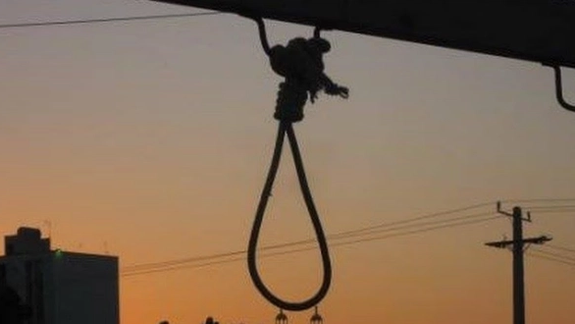
Iran's Supreme Court has overturned the death sentence of a football coach accused of sexually assaulting eight boys with a retrial set to commence after winning an appeal.
The accused, 40, was convicted of assaulting several teenage boys under the pretext of teaching football and consequently given a death sentence in a court in Tehran last year.
The boys, who were 12 and 13 years old, said the coach lured them to his house for football training. Victims claim he forced them to have sexual relations with each other, then filmed and blackmailed them, according to Iranian media outlets.
One of the students' fathers reported the coach to the police, stating: “Not long after my son's registration, I noticed his behavior had changed. His behavior had become aggressive, nervous, and withdrawn.
“After following the story with my wife, my son revealed a terrible secret that shocked us: the coach took him to his house and abused him there."
In the aftermath of the first complaint, seven other individuals reported similar experiences with the abuser.
In court, the coach denied any wrongdoing. The Tehran judges, however, found him guilty of rape and sentenced him to death. A lawyer for the defendant objected to the court's decision, arguing that he had not committed any rape but admitted sexual assault. Iran's Supreme Court subsequently reversed the death sentence, and the accused will now be retried.
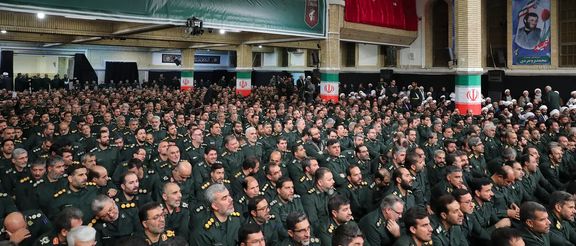
Canada's official designation of Iran’s Islamic Revolutionary Guard Corps (IRGC) as a terrorist organization has garnered global praise from political figures both inside and outside Iran.
After years of campaigning, Canada's designation follows a series of plots uncovered in Canada where the IRGC is said to have both raised money and recruited agents.
Michael Chong, Conservative Shadow Minister for Foreign Affairs, and Melissa Lantsman, Deputy Leader of the Conservative Party of Canada, said in a joint statement, “Trudeau and his Liberal government took six years to list the IRGC... As a result of that delay, the IRGC has been able to grow stronger as a result of Trudeau’s inaction.”
The US designated the group in 2019 and until now, Canada has imposed multiple rounds of sanctions on several terrorist designated entities that have benefited from the IRGC’s patronage and that have helped advance Iran’s interests and foreign policy, including Hezbollah, Hamas, the Palestinian Islamic Jihad, and the Taliban.
The designation has triggered others to push again for designating the group globally. Senator Claire Chandler, Chair of the Senate Foreign Affairs, Defense, and Trade Committee in Australia, reacted on X by saying, "While Canada acts, in Australia the Albanese Govt is refusing to even consider listing the IRGC."
The Australian Jewish Association also welcomed Canada's decision to declare the IRGC a terrorist organization and called on Australia to do the same. AJA CEO Robert Gregory stated, “The Albanese Government is the weakest link in the West when it comes to standing up to Iranian Regime terrorism and oppression.”
However, designation has been impacted by governments trying to appease the Iranian government amid its ongoing nuclear program. Countries such as France and the UK have seen massive lobbying from parliamentarians only to be pushed back under claims of pursuing a diplomatic solution. However, at the same time it should be noted that UK has issued many sanctions targeting Iran's malign activities and weapons proliferation.
In London, Iranian-born opposition figure and human rights activist Nazanin Boniadi expressed hope that the UK, EU, and Australia would follow suit in listing the IRGC as a terrorist group. The UK's top intelligence chief said last year that Iran was among the biggest foreign threats on UK soil after multiple plots had been foiled, including attacks and threats to Iran International journalists.
Israeli Foreign Minister Yisrael Katz also welcomed Canada's decision, calling the IRGC "the largest terrorist organization in the world."
In the announcement, Canada stated "there are reasonable grounds to believe that the IRGC has knowingly carried out, attempted to carry out, participated in or facilitated a terrorist activity, or has knowingly acted on behalf of, at the direction of, or in association with an entity that has knowingly carried out terrorist activity".
Journalist and activist Masih Alinejad, who has been the target of multiple assassination plots by the IRGC in the UK and US, also welcomed the Canadian government’s decision and called on G7 countries to follow the US and Canada in this regard.
"This is a step that took many years to come together. But better late than never," she said. "I want to strongly urge the rest of the G7 countries to follow the US and Canada’s lead to also designatie the IRGC as a terrorist organization."
Exiled Crown Prince Reza Pahlavi also praised the decision, calling it "an important but overdue step" in holding the "criminal" Islamic Republic regime accountable.
Iran’s Foreign Ministry Spokesman Nasser Kanaani condemned the move as "disgusting." He stated, “This irresponsible and provocative move continues the wrong path that the Canadian government has pursued for over a decade.”
Kazem Gharibabadi, Deputy for International Affairs of the Judiciary, also condemned Canada’s "hostile" decision, stating that the IRGC "is responsible for guarding Iran's national security and confronting terrorism in the region."
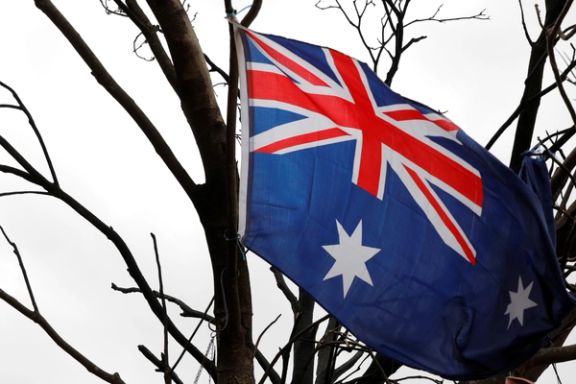
Australian Senators have welcomed Canada's designation of the Iranian Revolutionary Guards Corps (IRGC) on Wednesday and criticized the Australian government's refusal to do the same.
"The Canadian Government's action stands in stark contrast to the weakness of the Albanese Government which has failed to take any action in listing the IRGC as a terrorist organisation in Australia," a joint statement published by lawmakers Claire Chandler, Simon Birmingham and James Paterson read.
The group are among many in Australia campaigning to designate the group while governments around the world have tried to simply sanction the IRGC in a bid to appease Iran amid its ongoing nuclear program. The US designated the IRGC in 2019.
Australian-Iranian rights group Ausiran sent a letter to Australian Foreign Minister Penny Wong urging the government to acknowledge the IRGC's role in "sponsoring and engaging in terrorist activities", emphasizing their threat to global security and the safety of Australian citizens.
"Ausiran calls upon the Government to prioritize the safety and security of Australian citizens and to promote global peace by joining our allies in designating the IRGC as a terrorist organization," the letter said.
The Australian Jewish Association (AJA) reiterated their call for Australia to designate the IRGC, emphasizing its global role in terrorism with dozens plots foiled in the last two years on Jewish and Israeli targets globally.
"The IRGC is the largest sponsor and facilitator of terrorism worldwide, impacting victims from Yemen to Ukraine. They coordinate hostility against Israel," stated AJA CEO Robert Gregory. "Their actions result in casualties among our allies, including US soldiers in the Middle East, while they oppress and imprison the Iranian people."
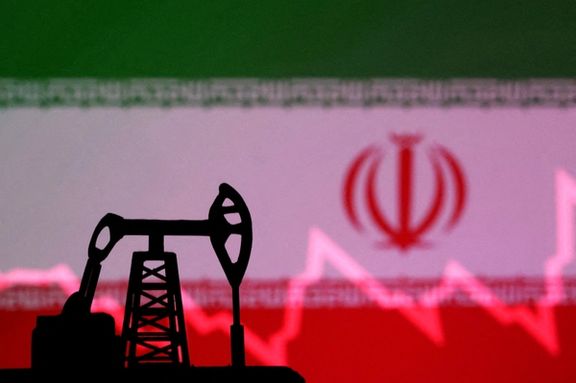
Mehdi Hosseini, Iran's former Deputy Minister of Oil, said oil sales have become easier under the Biden administration as Washington tries to keep gas prices low while the US elections approach.
Hosseini said, "The Americans want gas pump prices to be low and therefore allow Iran to increase its supply." However, former foreign minister Javad Zarif said earlier this week that the US government allowed Iran to break sanctions and export oil in the last three years.
The Iranian hardliners claim credit for the current government's ability to sell more oil despite sanctions, touting their strategies and "energy diplomacy." However, statistics and expert analyses suggest that the increase in oil exports is more attributable to decisions by the White House not to enforce sanctions.
With the US approaching elections, there is a strong need for low gasoline prices to gain votes, providing Iran with an opportunity to boost its oil production, claimed Hosseini.
However, Iran's oil exports, almost all to China, began to increase after a huge drop in 2019-2020, when Joe Biden was elected president in November 2020. Candidate Biden had promised to reverse President Donald Trump's decision to leave the JCPOA nuclear deal and impose sanctions on Iran.
Iran's crude output has risen to approximately 3.6 million barrels per day (b/d), according to the country's oil minister, Javad Owji, the highest production levels since sanctions were reimposed on Tehran's oil sector.
"Our oil production, which was 2.1 million b/d at the beginning of our time in office [in September 2021], has reached 3.6 million b/d," Owji stated during a presentation to the Iranian parliament on Wednesday.
Iran's Acting President Mohammad Mokhber also said Thursday that the country's oil sales capacity had been less than 300,000 b/d when Raisi took office but rose to about 1,800,000 b/d in less than a year and a half.
The additional output and exports to China, which are around 1.3 million barrels a day, generate around $37 billion a year for Iran. Although it is not clear if China pays all cash for the oil or exports good to Iran, the income is the main lifeline for Iran's battered economy.
The reasons for the revival in exports have been debated, with some attributing it to more relaxed enforcement of sanctions by the US, and others to Iran's improved methods of circumvention.
The debate has even become a point of contention among Iranian presidential candidates as they gear up for the country's snap election on June 28.
Conservative candidates and hardliners largely attribute the boost in exports to their own methods of evasion with Raisi administration officials repeatedly pointing to their success in raising exports.
But the 'reformist' camp refutes those claims, with former Foreign Minister Javad Zarif rejecting the conservative narrative on state television on June 18.
"They [hardliners] said 'we taught them how to sell oil.' Not at all," Zarif stated. "When Biden took office, his policy was to loosen the screw. Wait until Trump returns to office, and then we can see what [the hardliners] say."
He also argued that the Biden administration was willing to return to the nuclear deal that former President Donald Trump unilaterally withdrew from in 2018. However, according to Zarif, the opportunity was squandered due to pressure from both Israel and Iranian hardliners, who pushed the government to escalate the nuclear crisis.